An Independent Judiciary
Find out more about our work on judicial independence in Latin America....
Read more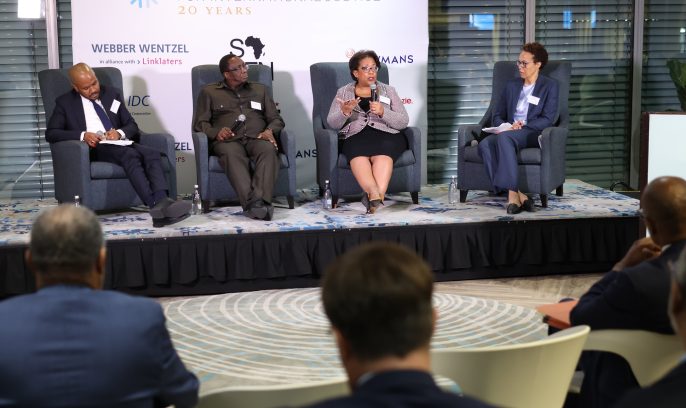
Here are some highlights from a year full of work across the globe. Read on for a snapshot of 2023 at the Vance Center, and see the section below for more detailed information about our ongoing initiatives.
An Independent Judiciary: Working closely with the Latin American Federation of Judges (FLAM) and other national and regional partners, the Latin America Policy Program continued to call out threats to judicial independence and support judges in asserting their key role as defenders of democracy. Our actions included a thematic hearing before the Inter-American Commission on Human Rights (IACHR) on threats to judicial independence, publishing country-level assessments of judicial independence in seven countries, and continuing to pursue justice for exiled Guatemalan judge Erika Aifán.
The IACHR hearing inspired an October 2023 regional dialogue on basic obstacles and threats to independent judicial actors across Latin America. More than 70 judges from 17 different countries, along with the UN Special Rapporteur on the Independence of Judges and Lawyers, Professor Margaret Satterthwaite, reached a consensus and a plan to address these challenges at this unique event.
Press Freedom: The Vance Center confronted growing threats to press freedom both domestically and internationally. Lawyers for Reporters, which provides pro bono legal services to independent, local and mission-driven news organizations across the U.S., expanded its staff and added dozens of new clients. Reporters Shield, an initiative of the Vance Center and Organized Crime and Corruption Reporting Project, received more than 100 applications for its program to defend members against vexatious defamation lawsuits, and welcomed its first members.
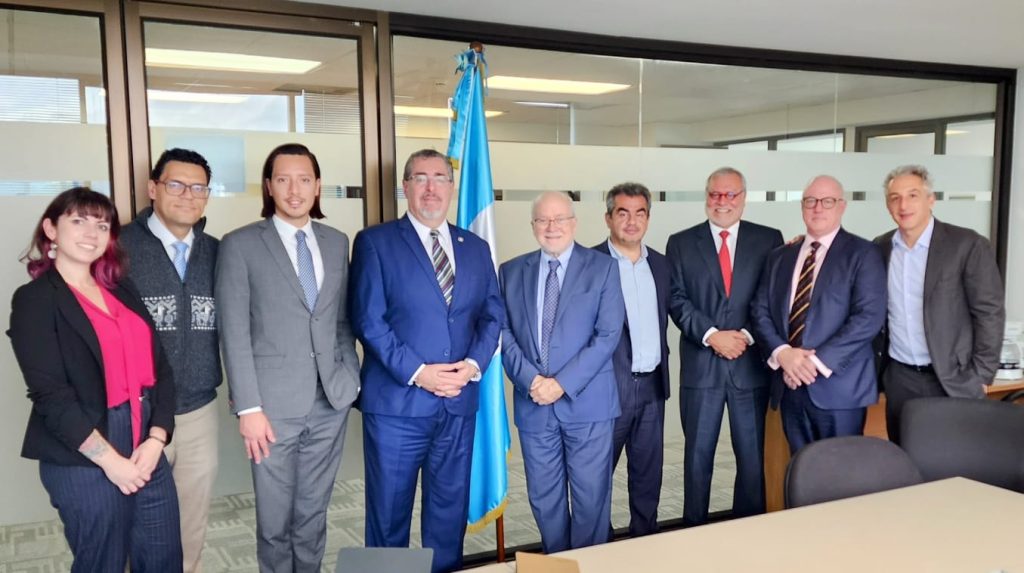
A Vance Center delegation met with President-elect Bernardo Arévalo in Guatemala City, November 6, 2023.
Combating Corruption: The Vance Center continued to fight against corruption in critical, high-impact areas of law reform and practice, including analyzing its impact on migrant populations, whistleblower protection in Mexico, civic space in West Africa, and strengthening legal institutions in Guatemala.
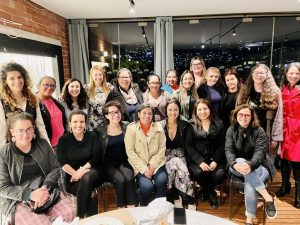
Participants in the Vance Center’s conference on strategic litigation initiatives on women in prison in Latin America and the Caribbean, Bogotá, Colombia, January 2023.
Incarcerated Women’s Rights: More than 30 members of the Women in Prison Network convened in January in Bogotá to plan strategic litigation and advocacy on the particular causes and consequences of incarcerating women. The Human Rights Program supported network members in countries including Guatemala and Bolivia and developed submissions to U.N. bodies on issues impacting women who have been incarcerated or interacted with law enforcement.
Immigrant Rights: The Keep Families Together initiative assisted dozens of migrant children and families to obtain the legal documentation they need to secure immigration relief in the U.S. In 2023 alone, we responded to more than 140 requests for support.
Intersection of Human and Environmental Rights: The Environment Program collaborated further with UN Special Rapporteurs to center human rights in climate change litigation and high-level dialogues, a partnership developed over more than 10 years.
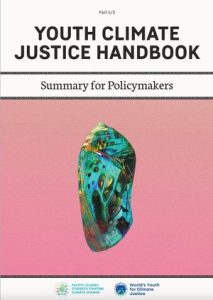
This year, we worked on several key projects at the intersection of environmental rights, climate, and youth. This included legal research on prevention, precaution, and intergenerational equity principles for use in UN General Comment No. 26 (July 2023) on advancing children’s rights and the environment. The Environment program also supported two youth climate justice organizations in preparing “The Youth Climate Justice Handbook,” a guide for states to formulate climate-ambitious arguments to the International Court of Justice.
Pro Bono Practice Development: The international development of pro bono practice inspired the founding of the Vance Center 20 years ago and remains a central focus. This year, the Africa Program launched Kenya’s first clearinghouse, and two dynamic 20th anniversary celebrations – one held in Bogotá in March and the second in Johannesburg in October – sparked planning for the future of pro bono practice.
Women in the Profession: Our Women in the Profession Program conducted regional convenings, re-launched its chapter in Colombia, and continued the extension of WIP to the African continent, with new chapters in Kenya and Ethiopia. The Advancing Women in the Workplace (AWW) project in South Africa entered its second year with a new cohort and renewed energy – see below for more on this exciting initiative.
Supporting Public Interest Law Careers: We welcomed a new cohort of Access to Justice practitioners from Brazil, Peru, and Chile to begin the program’s third year.
Find out more about our work on judicial independence in Latin America....
Read more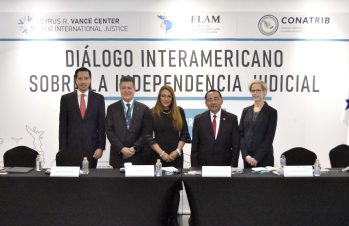
With the Latin American Federation of Judges (FLAM), the team organized a thematic hearing before the Inter-American Commission on Human Rights (IACHR) in March. Seven judges presented on conditions in their home countries, using the Vance Center’s country-level assessments to report on threats to their independence and emphasize the need for the IACHR to engage with governments in the region to improve conditions for judges.
In addition to the regional dialogue held in Mexico in October, we also organized and hosted a workshop on judicial independence, focused on countries in Central America, with Federación Centroamericana de Juezas y Jueces por la Democracia (FECAJUD).
In the case before the IACHR on behalf of exiled Guatemalan Judge Erika Aifán, testimonies from 13 more former justice operators strengthened our submission.
All publications related to judicial independence are available here: https://www.vancecenter.org/publications/?slug=latin-america-policy
Working to protect investigative reporting, in the U.S. and around the world....
Read more
Lawyers for Reporters expanded its work to sustain public interest reporting in the U.S. through providing pro bono legal services to independent, local and mission-driven news organizations. We added two experienced media law attorneys to the team, which assisted 59 new and dozens more returning clients this year. Check out this map of the locations of our clients and the communities they serve.
Reporters Shield, an initiative of the Vance Center and Organized Crime and Corruption Reporting Project, has vetted more than 100 applications from public interest reporting organizations for the first round of membership. The Vance Center is responsible for coordinating the provision of legal services to members, including training, pre-publication review, and finding and funding legal defense.
In addition to the projects above, the Environment Program worked on several other timely initiatives....
Read more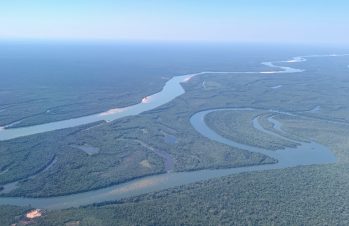
This year, the Environment Program submitted two amicus briefs in significant international climate cases. The Program worked with Milbank LLP on a brief to the International Tribunal for the Law of the Sea (ITLOS) on behalf of three UN Special Rapporteurs to help inform ITLOS’ advisory opinion on State parties’ obligations related to climate change. In November, we again partnered with Milbank lawyers and the UN Special Rapporteurs on human rights and the environment, toxics and human rights, and the right to development to submit a brief to the Inter-American Court of Human Rights on States’ climate obligations under the American Convention on Human Rights.
The program also provided expert support to civil society organizations, enhancing their ability to engage in environmental rights defense and advocacy. Building on previous legal workshops on the Escazú Agreement and its country-level implementation, we conducted research for WECAN International on free, prior, and informed consent (FPIC) to inform advocacy and training for the organization’s networks of Indigenous women environmental and land defenders in Latin America and the Caribbean.
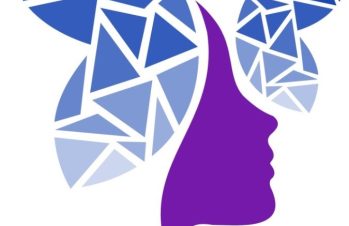
The Human Rights Program extended pro bono legal support to Women in Prison Network members in Guatemala on exploitative conditions for women in mixed prisons, the right to health and adequate nutrition, and the criminalization of women human rights defenders.
In Bolivia, our efforts focused on strategic litigation regarding the criminalization of self-defense in cases of domestic violence and of sexual harassment. At the international level, the program assisted with the submission of reports to UN bodies on women deprived of liberty and advancing racial justice and equality in the context of law enforcement.
Helping migrant children and families get the documentation they need....
Read more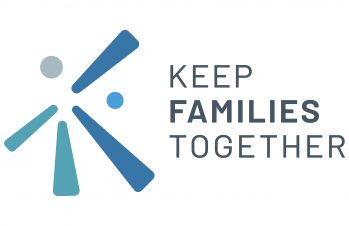
Our Keep Families Together initiative strives to ensure that migrant children and families have the legal documentation they need to secure immigration relief in the U.S. The work depends on a committed network of legal partners, who dedicate their resources and a great deal of time to obtaining critical legal information for KFT clients.
As of 2023, KFT has:
Collaborated with 150 legal partners to support the legal representation of 450 separated children and families from 35 countries.
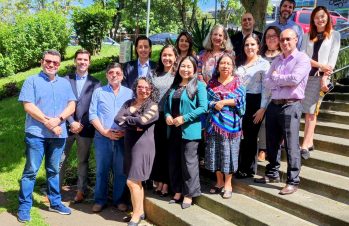
In April, the Africa Program launched with national partners the Pro Bono Institute of Kenya, the country’s first pro bono clearinghouse.
Discussions on the current state and future of pro bono work, including engaging the next generation of lawyers and pro bono practitioners, took place at events throughout the year: in Costa Rica with the Pro Bono Network of the Americas, in New York at the World Law Congress and around the UN General Assembly, and in South Africa for our 20th Anniversary celebration.
Supporting women's achievement and leadership in the legal profession....
Read more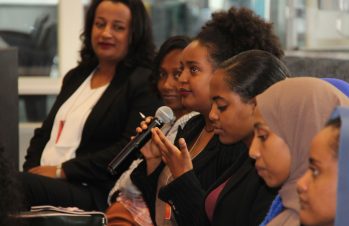
The second year of the Advancing Women in the Workplace (AWW) project in South Africa welcomed a new cohort of 40 mentors and mentees, explored barriers and opportunities for women in specialized areas of law that have historically offered little space for women’s leadership, and provided professional development opportunities such as fireside chats and trainings
Meet our three new practitioners from Brazil, Chile and Peru...
Read more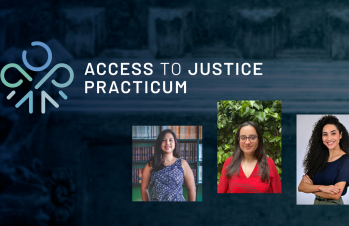
Three new practitioners from Brazil, Peru, and Chile joined this year’s cohort. They are working on projects at clearinghouse members of the Pro Bono Network of the Americas to address discrimination against Afro-descendant women in Brazil, improve access to justice for transgender women in Peru, and identify legal reforms to address overcrowding and other confinement conditions in Chile.
Find out more about our work on judicial independence in Latin America....
Read more
With the Latin American Federation of Judges (FLAM), the team organized a thematic hearing before the Inter-American Commission on Human Rights (IACHR) in March. Seven judges presented on conditions in their home countries, using the Vance Center’s country-level assessments to report on threats to their independence and emphasize the need for the IACHR to engage with governments in the region to improve conditions for judges.
In addition to the regional dialogue held in Mexico in October, we also organized and hosted a workshop on judicial independence, focused on countries in Central America, with Federación Centroamericana de Juezas y Jueces por la Democracia (FECAJUD).
In the case before the IACHR on behalf of exiled Guatemalan Judge Erika Aifán, testimonies from 13 more former justice operators strengthened our submission.
All publications related to judicial independence are available here: https://www.vancecenter.org/publications/?slug=latin-america-policy
Working to protect investigative reporting, in the U.S. and around the world....
Read more
Lawyers for Reporters expanded its work to sustain public interest reporting in the U.S. through providing pro bono legal services to independent, local and mission-driven news organizations. We added two experienced media law attorneys to the team, which assisted 59 new and dozens more returning clients this year. Check out this map of the locations of our clients and the communities they serve.
Reporters Shield, an initiative of the Vance Center and Organized Crime and Corruption Reporting Project, has vetted more than 100 applications from public interest reporting organizations for the first round of membership. The Vance Center is responsible for coordinating the provision of legal services to members, including training, pre-publication review, and finding and funding legal defense.
In addition to the projects above, the Environment Program worked on several other timely initiatives....
Read more
This year, the Environment Program submitted two amicus briefs in significant international climate cases. The Program worked with Milbank LLP on a brief to the International Tribunal for the Law of the Sea (ITLOS) on behalf of three UN Special Rapporteurs to help inform ITLOS’ advisory opinion on State parties’ obligations related to climate change. In November, we again partnered with Milbank lawyers and the UN Special Rapporteurs on human rights and the environment, toxics and human rights, and the right to development to submit a brief to the Inter-American Court of Human Rights on States’ climate obligations under the American Convention on Human Rights.
The program also provided expert support to civil society organizations, enhancing their ability to engage in environmental rights defense and advocacy. Building on previous legal workshops on the Escazú Agreement and its country-level implementation, we conducted research for WECAN International on free, prior, and informed consent (FPIC) to inform advocacy and training for the organization’s networks of Indigenous women environmental and land defenders in Latin America and the Caribbean.
We supported Network members in Guatemala, Bolivia and more....
Read more
The Human Rights Program extended pro bono legal support to Women in Prison Network members in Guatemala on exploitative conditions for women in mixed prisons, the right to health and adequate nutrition, and the criminalization of women human rights defenders.
In Bolivia, our efforts focused on strategic litigation regarding the criminalization of self-defense in cases of domestic violence and of sexual harassment. At the international level, the program assisted with the submission of reports to UN bodies on women deprived of liberty and advancing racial justice and equality in the context of law enforcement.
Helping migrant children and families get the documentation they need....
Read more
Our Keep Families Together initiative strives to ensure that migrant children and families have the legal documentation they need to secure immigration relief in the U.S. The work depends on a committed network of legal partners, who dedicate their resources and a great deal of time to obtaining critical legal information for KFT clients.
As of 2023, KFT has:
Collaborated with 150 legal partners to support the legal representation of 450 separated children and families from 35 countries.
Looking ahead to the future of pro bono work...
Read more
In April, the Africa Program launched with national partners the Pro Bono Institute of Kenya, the country’s first pro bono clearinghouse.
Discussions on the current state and future of pro bono work, including engaging the next generation of lawyers and pro bono practitioners, took place at events throughout the year: in Costa Rica with the Pro Bono Network of the Americas, in New York at the World Law Congress and around the UN General Assembly, and in South Africa for our 20th Anniversary celebration.
Supporting women's achievement and leadership in the legal profession....
Read more
The second year of the Advancing Women in the Workplace (AWW) project in South Africa welcomed a new cohort of 40 mentors and mentees, explored barriers and opportunities for women in specialized areas of law that have historically offered little space for women’s leadership, and provided professional development opportunities such as fireside chats and trainings
Meet our three new practitioners from Brazil, Chile and Peru...
Read more
Three new practitioners from Brazil, Peru, and Chile joined this year’s cohort. They are working on projects at clearinghouse members of the Pro Bono Network of the Americas to address discrimination against Afro-descendant women in Brazil, improve access to justice for transgender women in Peru, and identify legal reforms to address overcrowding and other confinement conditions in Chile.

